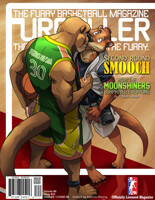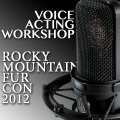
Everyone nickered about the same thing. It was exciting enough just to have a film crew in town. To have John Fjord, the director of some of the best Westerns out of Furrywood, directing a film based on a novel by P. F. Hoofler, one of the highest regarded equine writers, was overwhelming. Everyone had read the interview the local paper had done with the film’s marketing team who said that the grassy summer hills of Northern Maine were perfect for the period piece, and the downtown with its hard-pounded main street and high doorways looked just as a horse-majority town should. And the assistance given by the starstruck locals made the long trip worth it.
Like everyone else that summer, young Lance Cheval came out to the set every day to watch production. He couldn’t get enough of it. The workers setting up lights and reflector boards, the massive jib arm holding the camera, the zeppelin-held microphone lifted high over the actors—all of it built to surround the talent, as if instead of performing on a stage, the stage had been built around them. He watched as much as he could, mesmerized by the business of filmmaking, talking with anyone he could. He had an advantage being a draft horse. He was bigger than the rest of the colts in the town which made him stick out. And unlike the others who just crowed to see the actors, Lance talked with anyone, treating even the production assistants as if they had the best job in the world. He even got to know a few names as the filmmakers recognized him, but even he could never get the attention of the truly important, the director as quiet to the locals as Lisa Landais, the mare star of the film.
That was a disappointment to some. When Lisa Landais showed up for her scenes, it didn’t seem the town could get any more excited. She was famous among horses, a beautiful and talented warm blood who brought infectious charm to the screen. The town was stomping their hooves with excitement over having such a celebrity in their little town.
But that was before they announced they needed a local colt for a new scene.
When Lance said he would try out for the role, the other colts laughed at him. “You’re a drafter,” a friend reminded him. “You never see drafters in movies.” His friend had a point. Equine society was strongly stratified, especially in a horse-majority town. It was common knowledge that draft horses were laborers, destined for factories or fieldwork, the same jobs generations of Chevals had held. Only warmbloods were considered beautiful, holding the elegance and radiance that Furrywood loved to put on the silver screen. And that was why you never saw drafters in movies.
But Lance wouldn’t give up. He just tried harder.
Back at the set, a film worker he had made friends with let him read the script. Lance poured over it, trying to get a feel for what the story was like and how this new role fit. He cringed at a bit of dialogue implying the town was all warmbloods. That convinced him to pretend to be sick that week so his parents wouldn’t make him eat his oats. He starved himself in the days leading up to his first audition, then quietly bought some oversized clothing to cover his broad percheron frame. The morning of auditions, he dressed his mane in a style he had found from a book of photographs from the 19th century, matching with the film’s time period. And when it came his turn to appear before the assistant casting director for first approvals, he was moved on to the next round.
Second tryout demanded a spoken line. He was given a page with the one scene the character would appear in, a scene he had already memorized. In fact, he felt lucky. Since he read the entire script, he knew the meaning behind the dialogue better, and it was slightly different from what the text alone implied. Back at the set, his friend got him to meet the sound engineer, who let him listen to some outtakes. Lance noticed how the actors playing local horses were speaking with a soft Quebec accent, one very similar to Lance’s own grandfather. So he bicycled to the next town to see his grandpa, giving the old plow horse a magnificent day talking to his grandson.
At second audition, Lance stood out even worse. The pool was still several dozen colts, all of them the handsomest in town. Among the big drafter were colts from the best families and finest breeding, secured in knowing they’d be getting dressage scholarships in Kentucky and Tennessee, assured a good life by their equine beauty. But big Lance did his very best. He performed the line using his grandpa’s voice, adding the touch of concern earlier events in the film demanded. He then asked the casting director if she wanted to see anything else, just to let her know he could be directed. She did ask for a change, and he made it. And he made it to the final round of casting.
The other two colts who made it were stunned to see Lance there. But they snickered, knowing he would be the first of them cut. The final audition was a screen test, and now the camera would see the big, ugly draft colt Lance was. But he still wouldn’t give up. He spent hours in front of the mirror, seeing how the light looked on his face. He borrowed a webcamera from a friend and took videos of himself, every angle, every gesture, trying to figure out how to deliver the action in the most attractive way. His parents, now thrilled at being so close to their son making it into the movie, agreed to buy him new clothes that fit with the character he would play, and got a salon to fix up his mane. Lance practiced and practiced and practiced his line, until he could run it inside and out, until he was dreaming the scene in his sleep.
When the film camera was put in front of Lance, he delivered the line the very best he could. The director was there this time, and asked him to try a couple other things. Lance did them both. During his audition, Lisa Landais showed up to speak to the director, but stuck around for a take. She smiled at Lance and wished him good luck. As she left, the colt could hear her whisper to the director, “He looks good.”
Lance was overwhelmed when he got the role. It was only one scene, they only took five takes, and the director pointed out that the first one was the best. Lance beamed when the director thanked him for doing such a good job.
As the colt was wrapping up to leave, eager to see the looks of jealousy in his warmblooded friends’ eyes, Lisa Landais stopped by to thank him. She let him know he had done a good job, which made Lance glow, that hope of a possible future Furrywood career budding in his heart. Lance wanted to ask something, but was almost too shy to. Almost. Just before she left, Lance asked if she knew why the director, out of all the warmbloods he could have picked, chose a drafter like him.
Lisa smiled. “Because you earned it,” she told him.
Lance Cheval (Stallion, C, SAS) is being followed by a camera crew for a reality program about his life. In honor of this marvelous idea from mongoose_ink, I commissioned some pictures about Lance's past. And who better to commission that Mitch's dopplegänger?
mongoose_ink, I commissioned some pictures about Lance's past. And who better to commission that Mitch's dopplegänger?
 gideon drew this amazing piece at Rainfurrest 2013. I just gave him the backstory of Lance's appearance in a movie as a colt, and he made everything around it. I love the high concept here, the period drama, the production elements around-- could not have captured it better. I even love the director's name and the production company.
gideon drew this amazing piece at Rainfurrest 2013. I just gave him the backstory of Lance's appearance in a movie as a colt, and he made everything around it. I love the high concept here, the period drama, the production elements around-- could not have captured it better. I even love the director's name and the production company.
Thank you, gideon!
gideon!
Like everyone else that summer, young Lance Cheval came out to the set every day to watch production. He couldn’t get enough of it. The workers setting up lights and reflector boards, the massive jib arm holding the camera, the zeppelin-held microphone lifted high over the actors—all of it built to surround the talent, as if instead of performing on a stage, the stage had been built around them. He watched as much as he could, mesmerized by the business of filmmaking, talking with anyone he could. He had an advantage being a draft horse. He was bigger than the rest of the colts in the town which made him stick out. And unlike the others who just crowed to see the actors, Lance talked with anyone, treating even the production assistants as if they had the best job in the world. He even got to know a few names as the filmmakers recognized him, but even he could never get the attention of the truly important, the director as quiet to the locals as Lisa Landais, the mare star of the film.
That was a disappointment to some. When Lisa Landais showed up for her scenes, it didn’t seem the town could get any more excited. She was famous among horses, a beautiful and talented warm blood who brought infectious charm to the screen. The town was stomping their hooves with excitement over having such a celebrity in their little town.
But that was before they announced they needed a local colt for a new scene.
When Lance said he would try out for the role, the other colts laughed at him. “You’re a drafter,” a friend reminded him. “You never see drafters in movies.” His friend had a point. Equine society was strongly stratified, especially in a horse-majority town. It was common knowledge that draft horses were laborers, destined for factories or fieldwork, the same jobs generations of Chevals had held. Only warmbloods were considered beautiful, holding the elegance and radiance that Furrywood loved to put on the silver screen. And that was why you never saw drafters in movies.
But Lance wouldn’t give up. He just tried harder.
Back at the set, a film worker he had made friends with let him read the script. Lance poured over it, trying to get a feel for what the story was like and how this new role fit. He cringed at a bit of dialogue implying the town was all warmbloods. That convinced him to pretend to be sick that week so his parents wouldn’t make him eat his oats. He starved himself in the days leading up to his first audition, then quietly bought some oversized clothing to cover his broad percheron frame. The morning of auditions, he dressed his mane in a style he had found from a book of photographs from the 19th century, matching with the film’s time period. And when it came his turn to appear before the assistant casting director for first approvals, he was moved on to the next round.
Second tryout demanded a spoken line. He was given a page with the one scene the character would appear in, a scene he had already memorized. In fact, he felt lucky. Since he read the entire script, he knew the meaning behind the dialogue better, and it was slightly different from what the text alone implied. Back at the set, his friend got him to meet the sound engineer, who let him listen to some outtakes. Lance noticed how the actors playing local horses were speaking with a soft Quebec accent, one very similar to Lance’s own grandfather. So he bicycled to the next town to see his grandpa, giving the old plow horse a magnificent day talking to his grandson.
At second audition, Lance stood out even worse. The pool was still several dozen colts, all of them the handsomest in town. Among the big drafter were colts from the best families and finest breeding, secured in knowing they’d be getting dressage scholarships in Kentucky and Tennessee, assured a good life by their equine beauty. But big Lance did his very best. He performed the line using his grandpa’s voice, adding the touch of concern earlier events in the film demanded. He then asked the casting director if she wanted to see anything else, just to let her know he could be directed. She did ask for a change, and he made it. And he made it to the final round of casting.
The other two colts who made it were stunned to see Lance there. But they snickered, knowing he would be the first of them cut. The final audition was a screen test, and now the camera would see the big, ugly draft colt Lance was. But he still wouldn’t give up. He spent hours in front of the mirror, seeing how the light looked on his face. He borrowed a webcamera from a friend and took videos of himself, every angle, every gesture, trying to figure out how to deliver the action in the most attractive way. His parents, now thrilled at being so close to their son making it into the movie, agreed to buy him new clothes that fit with the character he would play, and got a salon to fix up his mane. Lance practiced and practiced and practiced his line, until he could run it inside and out, until he was dreaming the scene in his sleep.
When the film camera was put in front of Lance, he delivered the line the very best he could. The director was there this time, and asked him to try a couple other things. Lance did them both. During his audition, Lisa Landais showed up to speak to the director, but stuck around for a take. She smiled at Lance and wished him good luck. As she left, the colt could hear her whisper to the director, “He looks good.”
Lance was overwhelmed when he got the role. It was only one scene, they only took five takes, and the director pointed out that the first one was the best. Lance beamed when the director thanked him for doing such a good job.
As the colt was wrapping up to leave, eager to see the looks of jealousy in his warmblooded friends’ eyes, Lisa Landais stopped by to thank him. She let him know he had done a good job, which made Lance glow, that hope of a possible future Furrywood career budding in his heart. Lance wanted to ask something, but was almost too shy to. Almost. Just before she left, Lance asked if she knew why the director, out of all the warmbloods he could have picked, chose a drafter like him.
Lisa smiled. “Because you earned it,” she told him.
Lance Cheval (Stallion, C, SAS) is being followed by a camera crew for a reality program about his life. In honor of this marvelous idea from
 mongoose_ink, I commissioned some pictures about Lance's past. And who better to commission that Mitch's dopplegänger?
mongoose_ink, I commissioned some pictures about Lance's past. And who better to commission that Mitch's dopplegänger? gideon drew this amazing piece at Rainfurrest 2013. I just gave him the backstory of Lance's appearance in a movie as a colt, and he made everything around it. I love the high concept here, the period drama, the production elements around-- could not have captured it better. I even love the director's name and the production company.
gideon drew this amazing piece at Rainfurrest 2013. I just gave him the backstory of Lance's appearance in a movie as a colt, and he made everything around it. I love the high concept here, the period drama, the production elements around-- could not have captured it better. I even love the director's name and the production company.Thank you,
 gideon!
gideon!
Category Artwork (Traditional) / General Furry Art
Species Horse
Size 1020 x 1280px
File Size 1.41 MB

 FA+
FA+
















Comments